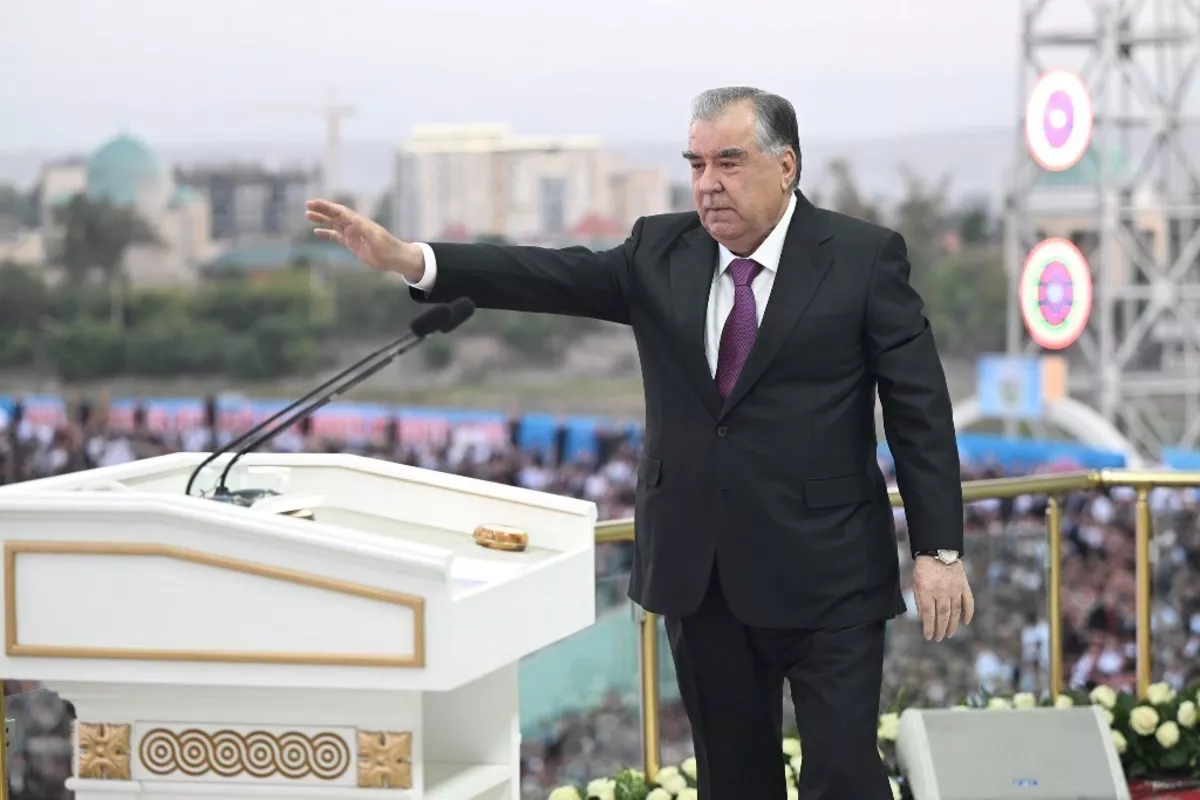
photo: Asia Plus
As President Emomali Rahmon celebrated his 73rd birthday, reflections on his more than three decades in power resurfaced across Tajikistan - and beyond.
Serving as the country's leader since 1992, Rahmon remains the longest-ruling president in Central Asia, The Caspian Post reports via Tajik media.
A wide-ranging collection of Rahmon’s most defining statements, revealing the core beliefs and priorities that have guided his leadership through war, reconstruction, and political transformation should be mentioned.
Spanning themes of democracy, national identity, governance, and security, the president’s quotes provide a revealing portrait of his political philosophy - centered on patriotism, tradition, order, and resistance to foreign influence, coupled with stern warnings against corruption, extremism, and public excess.
On Democracy and Governance
Rahmon has long resisted Western political models as unrealistic for post-Soviet states.
“Achieving the American model of democracy in Russia and other former Soviet republics within a year or two is simply impossible. It’s just a dream,” he told Euronews in 2012.
In a 1999 article, he wrote:
“True democracy means that no one has the right to impose their will or lifestyle on others by force.”
On Flattery and Political Culture
Rejecting cults of personality, Rahmon has often criticized official flattery.
“You shouldn’t glorify the president - or even the district chairman,” he told a girl during a 2014 trip to southern Tajikistan.
In 2012, he decried costly displays during his visits:
“Stop flattering! People come to me saying, ‘Every time you visit, they empty our pockets for carpets, flowers, and receptions.’ Stop this showmanship!”
On Public Hardship
Rahmon has positioned himself as a leader who shares the burdens of his people.
“Every winter, when the energy crisis hits, I suffer with the people,” he said in 2009, recalling the tragic deaths of infants during the 2008 power shortages.
On Culture and Modernization
Balancing progress with heritage has been a hallmark of Rahmon’s narrative.
“Modernization must not lead us to blindly embrace Western mass culture, which lacks moral restraint,” he warned in 2000.
On Civil War and National Unity
Reflecting on the 1990s civil war, Rahmon cited foreign influence as a key factor.
“If it weren’t for the Afghan problem, there would have been no civil war in Tajikistan,” he said in 2001.
On Loyalty and Betrayal
Rahmon has repeatedly emphasized the sacredness of national loyalty.
“No nation in history has forgiven betrayal of the Motherland. Tajikistan will never forget the treacherous acts that dragged our country into bloodshed,” he declared in 2015.
On Corruption and Public Service
The president frequently calls out misconduct within the state apparatus.
“Some law enforcement officers abuse their powers and forget their oath,” he said at a 2015 Security Council meeting.
In 2023, he warned:
“If you hold your position just to satisfy your greed, it’s better not to work in this system.”
On Inequality and Wealth Among Officials
Rahmon has highlighted the disconnect between public servant salaries and lavish lifestyles.
“How can a customs officer who’s been in service less than three years own 10 to 15 houses and several luxury cars?” he asked pointedly in 2019.
On Education and Academic Integrity
Promoting reform and ethics in education remains a recurring theme.
“Plagiarism is a disease of modern technology that affects young scholars,” Rahmon warned in 2020.
“We are deceiving ourselves. It is vital to review the education system,” he added in 2021.
On Language and Cultural Identity
Rahmon often frames the Tajik language as a civilizational treasure.
“The Tajik language is the heir to ancient Aryan tongues and one of the oldest in the world,” he said in 2019.
“Developing the scientific Tajik language is crucial,” he urged in 2020.
On Religion, Extremism, and Cultural Traditions
While affirming religious values, Rahmon has criticized surface-level religiosity.
“Piety is in the soul, not in clothing, hijab, or beard,” he said in 2017.
In 2024, he added:
“The enemies of Islam support religious extremism and sow hatred among Muslims.”
On Terrorism and National Security
Rahmon has taken a zero-tolerance stance on terrorism.
“There are no ‘good’ or ‘bad’ terrorists. A terrorist has no homeland, no religion, no nation,” he said in 2017.
Following the 2024 Crocus City Hall attack, he called on parents to:
“Raise children who will never tarnish the good name of the Tajik nation.”
On Labor Migration and Foreign Policy
Speaking to Russian President Vladimir Putin in 2022, Rahmon demanded respect for Tajik migrant workers.
“We want to be treated on equal footing with other nations. Our labor migrants work there - that should be taken into account.”
On Infrastructure and National Development
For Rahmon, the Roghun Dam symbolizes self-reliance and unity.
“Roghun is the bright future of the Tajik people - a source of pride for every citizen,” he declared in 2019.
In contrast, he condemned embezzlement during construction of the Istiqlol Medical Center, citing theft of over 150 million somonis.
On Moderation and Religious Rituals
Rahmon has repeatedly discouraged public extravagance.
“Showiness and wastefulness hinder the improvement of people’s lives,” he said in 2024.
He also criticized the commercialization of the Hajj pilgrimage, calling it “a family competition and tourism.”
On the Role of Officials and Teachers
At a 2024 school opening, he emphasized effective governance:
“An official must focus on correcting deficiencies - not on ceremonial greetings.”
He praised educators:
“Teachers must be respected. Without them, there would be no prosecutors or police officers.”
On Multilateralism and Global Cooperation
At the 2024 UN Summit of the Future in New York, Rahmon advocated for peacebuilding:
“It is vital to strengthen the role of the UN in resolving conflicts. I propose adopting a resolution on a decade of peacebuilding.”
A Presidency Defined by Continuity and Control
As Rahmon enters his 74th year, his legacy remains anchored in his unbroken rule since Tajikistan’s independence era - a tenure defined by calls for unity, resistance to foreign models, and an emphasis on state-centered development.
Share on social media